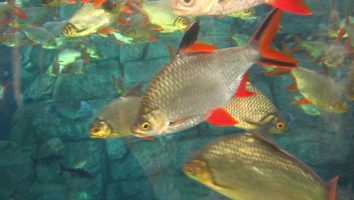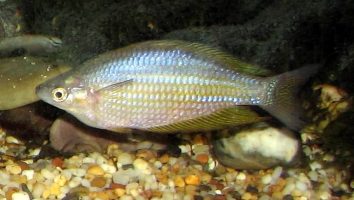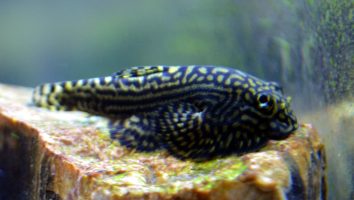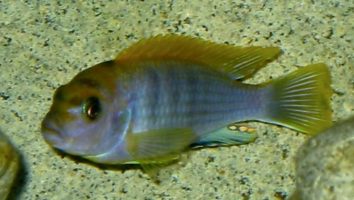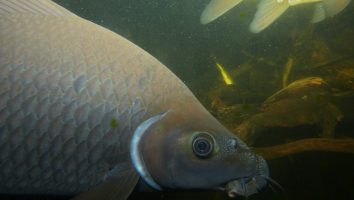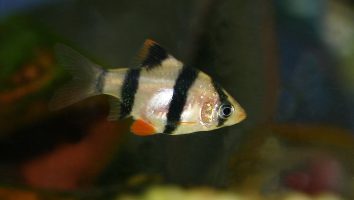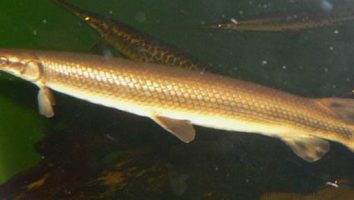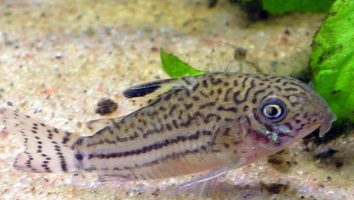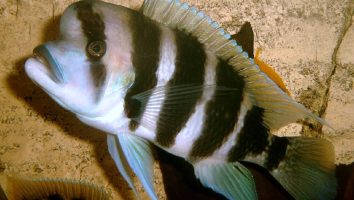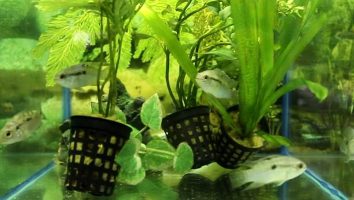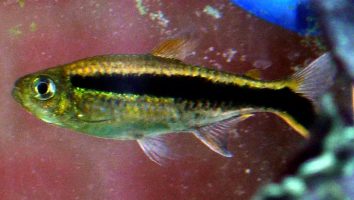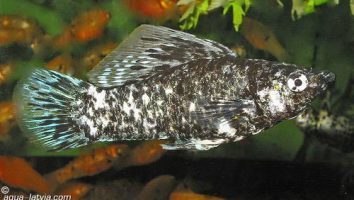The common discus is a stunning freshwater fish that is popular in the aquarium trade. They are relatively easy to care for and make a great addition to any tank.
However, there are a few things you need to know before adding one to your home. In this guide, we will go over everything you need to know about common discus care.
We will cover topics such as diet, tank size, tank mates, and more. By the end of this guide, you will be an expert on common discus care!
Table of contents
Species overview
Common discus (scientific name: Symphysodon aequifasciatus) are a type of cichlid that’s native to the Amazon basin in South America.
They prefer slow-moving water with a lot of vegetation. This is something that’s relatively common among cichlids, as they often come from rivers and streams.
Discus are some of the most popular freshwater aquarium fish out there. This is due to a combination of their bright colors and interesting patterns.
Common discus are peaceful fish, but they can be quite territorial. This means that they need a lot of space to themselves in order to be happy and healthy.
Appearance

The Common Discus is one of the most popular freshwater fish in the aquarium trade. They’re well known for their unique shape and beautiful coloration.
The body of the Common Discus is oval shaped and flattened from top to bottom. This gives them a very unique disc-like appearance that sets them apart from other fish.
Their coloration is very striking and can vary quite a bit depending on the individual fish. The most common colors are green, brown, and blue. However, you can also find them in red, orange, and yellow.
The fins on the Common Discus are all fairly long and streamline. The dorsal fin is tall and starts about two-thirds of the way back on the body. The anal fin is slightly shorter and also starts around two-thirds of the way back.
The pectoral and ventral fins are both short and stubby in comparison to the other fins. The caudal fin is forked and symmetrical.
All of the fins on the Common Discus have a beautiful iridescent sheen that really makes them stand out in a tank.
Lifespan
The average lifespan of a common discus is 10 years. There are a number of factors that impact their life expectancy.
For starters. if these fish haven’t reproduced then their lifespan will usually be on the higher side of this range. That process can really take a toll on the fish.
The general level of care they receive obviously matters a great deal as well. Even though these are very hardy fish, they’ll obviously live longer in optimal conditions.
Size
Discus fish can grow to be about 10 inches in diameter. However, they are typically only about 8 inches in diameter.
Tank
Tank Size
The recommended tank size for common discus fish is 50 gallons. If you want to keep more than one discus fish in the same tank, you’ll need an additional 30 gallons for each fish.
Discus fish are notoriously sensitive to water quality so it’s important that you have a filter that can handle the load. We recommend a canister filter for a discus tank.
Water Parameters
The discus is a freshwater fish that is native to the Amazon basin. In the wild, they inhabit slow-moving waters with soft, acidic water.
To keep your discus healthy, it’s important to maintain similar water conditions in the aquarium.
- Water Temperature: 82 to 86 degrees Fahrenheit
- pH Levels: 6.0 to 7.0
- Water Hardness: 2 to 12 dGH
- Alkalinity Levels: 4 to 8 dKH
What To Put In Their Tank
Discus are a bit of a unique fish when it comes to setting up their tank. This is because they prefer slow-moving water and a lot of plants.
In terms of substrate, a good option is to go with a dark sand. This will help to show off their colors and make the fish feel more comfortable. If you have live plants in the tank, then a nutrient-rich substrate will also be beneficial for them.
As for plants, you have a lot of options. Just about anything that can withstand high levels of nitrates will do well. This includes species like Java Fern, Anubias, and even some floating plants.
Discus also like to have a lot of hiding spots. Driftwood, caves, and rocks all make great options. Just make sure that any caves or holes are big enough for them to fit in (and that they won’t get stuck).
Common Diseases
The common discus is a rather hardy fish, but that doesn’t mean they can’t get sick. There are a few diseases that you should be on the lookout for.
The most common disease that affects this species is ich. This is a very contagious disease that can quickly spread through your entire tank if left untreated.
The most obvious symptom of ich is the presence of white spots on the body, fins, and gills of your fish. If you notice this, it’s important to act fast and begin treatment immediately.
Other diseases that can affect the common discus include infections, parasites, and respiratory illnesses. These are all rather common in the fish world and can be treated with the help of a veterinarian.
As with any other fish, the best way to keep your discus healthy is by maintaining a clean and stable tank. This will create an environment that is less conducive to disease and will help your fish fight off any illnesses that do come up.
Behavior & Temperament
The common discus is a peaceful fish that generally gets along well with other tank mates. They are not known to be aggressive and will usually only attack other fish if they feel threatened.
These fish are relatively shy, so they may not be the best choice if you’re looking for a fish that is active and out in the open. They prefer to stay hidden away and will often find a spot near the bottom of the tank to stay.
Common discus are social creatures and do best when they are kept in groups. They will often school together and can be seen swimming in formation.
Tank Mates
When it comes to common discus tank mates, the options are a bit limited.
This is primarily because discus are such delicate fish. They come from slow-moving waters in the Amazon and need pristine conditions to thrive.
As a result, they’re not the easiest fish to keep. They’re also not the best community fish since they’re slow-moving and shy.
That said, there are a few species that can work as common discus tank mates. These fish are typically peaceful, slow-moving, and come from similar habitats.
Some good options include:
- Cardinal Tetras
- Rummy Nose Tetras
- Corydoras Catfish
- Pleco Catfish
- Loricariidae Catfish
Breeding
Although the common discus is one of the easier fish to breed, it’s still not a beginner-level task. These fish are very particular about their environment and require a bit of know-how to successfully reproduce in captivity.
The first step is to set up a breeding tank. It should be at least 50 gallons and have plenty of hiding places. Driftwood, caves, and plants all make good options. The water should be soft and acidic, with a pH between 6.0 and 6.5. The temperature should be around 86 degrees Fahrenheit.
Once the tank is set up, you’ll need to add a pair of common discus. It’s best to add one male and one female, but you can also add two males if you’re having trouble finding a female.
Give the fish time to acclimate to their new home. Once they’re settled in, you can start feeding them live foods. This will help to trigger breeding.
You’ll know the spawning process has begun when you see the female lay her eggs on a flat surface. The male will then fertilize them. Once that’s done, the male will guard the eggs and keep them safe.
The eggs will hatch in about four days. At that point, you can remove the adults and start feeding the fry live foods. Baby brine shrimp and microworms are both good options.
As the fry grow, you can start to introduce them to flakes and pellets. Once they’re big enough, they can be moved to a main tank.
Conclusion
Discus care can be challenging, but it’s definitely doable with some care and attention.
These fish are stunning, and they can really add some flair to your tank.
They’re also relatively peaceful, which is a nice change of pace if you’re used to keeping fish that are constantly fighting.
Overall, we think discus are a great choice for experienced fishkeepers who are looking for a new challenge.

